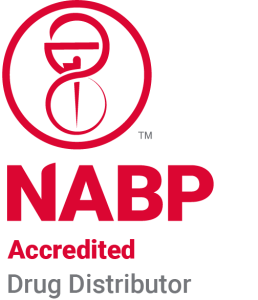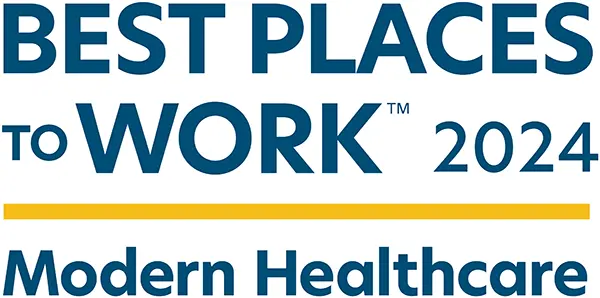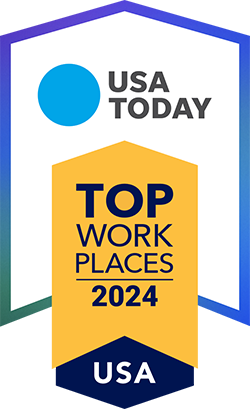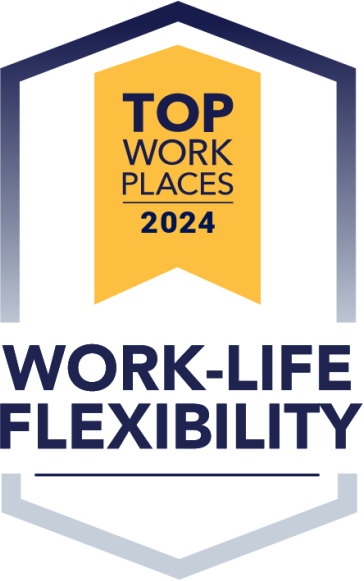Farmer & Chemist, a pharmacist-driven CBD company, discusses the science and clinical data behind the appropriate use of CBD (what it works for, what is does not work for), how it should be administered and dosed, and review its side effects and drug interactions. Not all CBD “is created equal” – learn about what you should ask and look for when choosing and recommending a good CBD product.
Presented by:
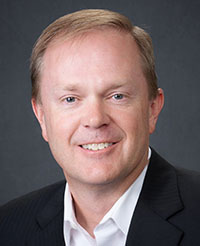
Jeffrey D. Dunn, Pharm.D., M.B.A.
Co-Founder
Farmer & Chemist

Douglas Burgoyne, PharmD, FAMCP
Co-Founder
Farmer & Chemist
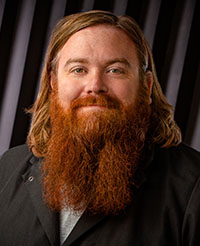
Blake Smith, Chief Science Officer
Co-Founder
Farmer & Chemist
Transcript
Blake Smith (00:00):
Well, I come from a pharmaceutical background, so I think about things a lot in terms of mechanism of action, drug interactions, where things are being metabolized, how we excrete, dosing. All of these types of things are extremely important and in a little while we’ll talk a little bit about some of the studies that we’ve been able to do, but generally speaking, I think this might be interesting. Everybody has probably heard about CB one and CB two receptor sites and the talk about how these receptor sites are endogenous [00:00:30] G-protein coupled cannabinoid receptors. But what we’re going to do is we’re going to talk just really briefly a little bit differently than what most people talk about. Typically speaking from all of the research that we’ve done, what we have found is that cannabis and cannabinoids in general basically are mimicking natural neurotransmitters that our body already creates.
Blake Smith (00:54):
And so this is one of the reasons why our bodies specifically mammalian neuroreceptor [00:01:00] pathways are open to receive these cannabinoids. For example, CBD mimics GABA. When we look at THC, it mimics the dopamine pathway. If we look at CBG, it mimics the AG pain pathway for enacting the parasympathetic nervous system after a fight or flight response. And so as we start to do some of these different types of looking at these specific proteins and we also look at the specific neurotransmitters, we can start to determine [00:01:30] how to have a physical effect or target specific medicines for specific conditions. So when we talk about CB one receptors, what we’re really talking about is the central nervous system. We’re talking about systemic use of cannabinoids across the entire system. For example, GABA, which ultimately helps with reversing the fight or flight response, which is why it’s effective for helping to lower anxiety, pulling back of adrenaline when we start [00:02:00] talking about slowing down cortisol release, et cetera, et cetera.
Blake Smith (02:04):
CBD is effective for that and it happens systemically, meaning that it’s actually happening at the interface within the synapse itself. Whereas when we start talking about endocannabinoid receptor system two or CB 2 receptors, we’re talking about cellular uptake of specific cannabinoids. What determines whether or not they hang out in CB 1 or CB 2 or have a higher affinity for those is based on something that we actually call Q log P value. You don’t need to remember [00:02:30] any of this. All this stuff will be in the slides, but the idea here is that we can specifically target specific cannabinoid medicines for specific uses. For example, we know that CBG helps with inflammation because of how it affects the AG pathway and it specifically is taken up right around the peroxisome where the peroxisome is producing histamine reactions during an anxiety response, which means if I have rheumatoid arthritis in my knuckles, a topical [00:03:00] is extremely effective with CBD and CBG mixed. Let’s go to the next slide.
Blake Smith (03:08):
So when we start thinking about these specific indicators, what cannabinoid is affecting, which specific neurotransmitter, we can then look at things of like the potential indications for use. Chronic pain is a huge one. We can affect pain and we are extremely effective at affecting pain on the whole entire central nervous system as well as locally. So individuals [00:03:30] who have arthritic fingers, we can unlock those fingers in 10 minutes and I’m so bold that I’ll say we can guarantee that because we have done enough data and seen this enough that I have not found anyone in this particular condition who has not received the benefits whether they were a believer or not, and that’s a really fun thing to be able to say. Then we can start looking at other things like anxiety, insomnia. When we look at insomnia, we can look at CBN, we can look at all these other things, intractable seizures, which is actually how I got into [00:04:00] this whole thing in the first place.
Blake Smith (04:02):
I have a family member who suffers from, has a condition that can lead to seizures and so we wanted to find a solution and we have found a molecule, a cannabinoid that actually helps with energetic interactions and limits things like Parkinson’s, certain effects from MS and intractable seizures. Alright, I think Jeff always tells me this so I’m going to mention it as well. The biggest challenge is when we start talking about [00:04:30] how many clinical trials are there out there, how many double-blind FDA approved trials are there? There’s not a ton. However, having said that, there are more all the time. We just actually completed a study at Texas A&M looking at arthritis in elbow joints for horses, and what we have found is through a topical use, we were able to decrease lameness to the point where the horses acted as if they were 15 [00:05:00] to 20 years younger than what they were. I mean, it was unbelievable. They would go on rides again and these horses were considered to be entirely lame and so there is more and more data all the time, and that was a specific CBD CBG topical use, which is even more crazy when we think about topical use versus something a systemic effect. Let’s go to the next slide.
Blake Smith (05:26):
So safety and drug interaction. This has been a problematic and one [00:05:30] of the problems is generally speaking, this has been one of the issues the FDA has had is when we start looking at elimination studies, which is required anytime we’re going to start doing AME, when we’re going to start doing D M P K, when we start going through all this entire process, we look at elimination, but because a lot of cannabinoids are metabolized basically as a neurotransmitter, now that doesn’t mean that they don’t go through the liver. If you ingest it, obviously it goes through the liver and it actually goes through P450, but I’ll leave Doug and Jeff to talk more specifically about that. [00:06:00] But the reality is if you were to do an inhalation method or you’re directly targeting cells or you’re doing other modes of administration, what we have found is they metabolize in the same way that most neurotransmitters get washed, and so you do not get the same elimination rounds that you would through most other normal drugs.
Blake Smith (06:20):
The FDA doesn’t know really what to do with this. Similar compounds that are currently being evaluated are like nano silver and there are several others now. [00:06:30] It’s not recommended for pregnant women. There have been traces found in nursing mothers look, that’s partially just because it’s a systemic effect. Now, always if you look at targets, be careful with extremely old people, be extremely careful with pregnant mothers and be careful with children. However, having said this, we look at things like Epidiolex, which had a full safety profile approved by the FDA and when looking at that, which is anti-epileptic for [00:07:00] children, they did these toxicity studies for them and what they found was though they had slight increased liver enzyme activity, there was no detrimental effect or toxicity. What all does that mean? I’m just going to break it down real easy and say from all studies so far, when we’re looking at CBD and we’re looking at most of the cannabinoids in existence, the toxicity levels are non-existent.
Blake Smith (07:24):
We have not found hepatic failure. We have not found heart failure even in extreme doses and [00:07:30] toxic studies where we’re actually trying to determine the LD number. In most cases we can’t even find an ld. And so that’s really cool because also because most of these are being metabolized as we would other neurotransmitters, we don’t have a lot of the same drug interactions as we do with other drugs. Now, there are some exceptions to that and please chime in if you guys want to, but when we look at things like warfarin or we look at strong SSRIs, zein benzodiazepines, [00:08:00] you do have certain neurotransmitters that are affected with those drugs and the corresponding cannabinoid can also be affected. For example, if you’re on gabapentin and take CBD, you actually get an enhancement effect, which is actually sort of awesome because you can lower the total amount of gabapentin and still get the beneficial effects.
Jeff Dunn (08:22):
Yeah, Blake, I’m just going to say and chime in I think this is a huge opportunity for us as pharmacists because we know what other medications our patients [00:08:30] and customers are using. So as you’ve just taught us CBD CBN CBG, they are drugs. They cause great benefit in a lot of different disease states, but we just need to be careful. I just want to point out as an example though, the interaction with antidepressants increases the concentration of the antidepressants. So we don’t need to worry about losing efficacy, but we do need to maybe counselor our patients to just be aware of side effects as an example.
Blake Smith (08:55):
Yeah, that’s a good point. That’s a very good point, Jeff.
Doug Burgoyne (08:58):
I think one more to add as we think about [00:09:00] drug interactions is the drug interaction with warfarin and with clopidogrel. So both of those are important ones for folks who have various heart conditions, we all know what the indications are for those two medications and if you’re recommending a CBD product to someone who’s using Plavix or Warfarin, then be careful about that. It’s possible to do, but it certainly affects the [00:09:30] potency of the different products. So just a warning there,
Blake Smith (09:34):
Doug, that’s a really good point. I mean, and the way that we typically think about dosing most cannabinoid products anyway is start low and slow and work up. And so you don’t typically come in really hard taking a whole bunch of a product and trying to use it to replace all your drugs. In the case of where we’ve had extreme success, especially around seizure conditions, you never take somebody immediately off their seizure meds. You slowly back that [00:10:00] off as you increase CBC or the other anti-seizure molecules. And so when you do that, then you can come use them safely.
Jeff Dunn (10:11):
So’s good. We’ll take a little bit deeper dive into dosing here in a minute. So that’s a great lead in.
Blake Smith (10:18):
That’s good.
Branden Borremans, Moderator (10:18):
Actually we have a well-timed question here from one of our attendees. What are the most common cannabinoids and what do they do?
Blake Smith (10:26):
Oh yeah, so on mass spectrometer we have found about 120 [00:10:30] cannabinoids. Now, I don’t believe that every one of them actually has a systemic effect or is physiologically active. However, we do know currently of 12 that have been studied and are currently being studied and the most common ones that you’re going to find are CBD CBG and CBD is basically effective for anxiety. It helps with long-term pain, it helps with generally anything that you would use GABA for. Essentially CBG [00:11:00] is helped for direct inflammation. One last thing about CBD, CBD is a systemic affecting drug and so you would take that in terms of a tincture, a pill, a gummy, something along those lines, and it’s longer lasting. Its bioavailability typically lasts, its half-life is about six hours. CBG is faster than that, but it has a higher cellular uptake.
Blake Smith (11:24):
So in topicals it’s often better, but you can get some effect, especially for [00:11:30] leaky gut and inflammation in the gut using CBG. CBG is a good anti-inflammatory. CBC is good for energetic interactions. If you have Parkinson’s seizure effects that are not freezing seizures but energetic seizures, CBC has effects there. CBL is in that same category. Oh, CBC and CBD are also neuroprotective, so we actually show a decrease in demyelination as you age when you’re using high amounts of CBD. We also have THC, [00:12:00] which we meet all the national rules, AG rules associated with being below 0.3%, but we actually also can create a hundred percent THC free products in case there’s firefighters or people who are constantly being drug tested. We actually can make these things without THC at all.
Blake Smith (12:20):
THC affects dopamine. It’s used as a masking agent mostly there’s CBD V, it’s the munchies molecule, it stimulates appetite. It can also cause thermogenesis. [00:12:30] There’s THC V which actually restricts appetite. Oh my gosh, it just keeps going on and on. But those are like CBN CBN for sleep. CBN seems to affect the soma around the serotonin and melatonin pathways. It seems to be able to be absorbed on both receptor sites. And so those are the ones that come immediately off the top of my head.
Branden Borremans, Moderator (12:55):
Ok thanks for the answer. Appreciate that.
Blake Smith (13:00):
[00:13:00] Alright. Roots of delivery, just like any drug, look, there’s all kinds of routes of administration. I mean when we test these in pharmas, you do everything from into, yeah, there’s lots of ways to do this, but here’s how we think about this. When we talk about routes of delivery for cannabinoids, we often go to oral, which is going to have a certain amount of uptake. It’s going to have to go through the epithelial [00:13:30] within the intestines itself. And so then you’re going to also have to go through liver metabolism. We have oral or mucosal sublingual, so you go under the tongue. There is limited absorption there, but there is some. We have actually been able to see individuals who have been having seizures who have a oral mucosal, like a tincture that they rub on the inside of the gums and actually have arrested seizures within about 30 seconds to a minute.
Blake Smith (13:56):
By doing so, we do know you can get absorption that way. Orals [00:14:00] are often edibles in terms of gummies and pills and then obviously topicals, salves, balms, but you can use tinctures, you can put it into a lotion. There’s all kinds of different ways to do it administratively that way we are not big fans of the inhalation or smoking methods specifically because if it’s smoking and smoking of cannabinoids, then your hot particulates in your lungs, which is not good. It has cancer implications and obviously vaporization is hot oil [00:14:30] in your lungs, which is also not good. And if you have subpar products where they’re using things like vitamin e acetate or some of these other aldehydes that exist out there as solvents or preservatives, those actually will under heat get turned to formaldehyde within the lung. And so yeah, let’s avoid all of those. Someday we may move to an inhaler, but the FDA has not looked favorably on that yet. So as of right now, we’re limited to oral sublingual and topicals.
Branden Borremans, Moderator (15:00):
Blake, can we jump in with another question from one of our attendees here?
Blake Smith (15:04):
Yeah.
Branden Borremans, Moderator (15:06):
And again, back to basics here. Is there a real clinical data that shows that CBD works?
Blake Smith (15:13):
Yeah, that’s a really great question. Yes, there is actually very clear definitive data. In fact, you can go to the Farmer and Chemist website and there is all kinds of data that you can link to there. There is a library look more and more is coming out all the time that shows that it’s effective. But [00:15:30] I’m going to throw out a caveat to this. Look, the entire industry CBD industry started trying to make hay while the sun was shining. And so you have people who are basically making bathtub gin the equivalent of CBD in the bathtub and trying to sell that off. A perfect example is on Amazon you’ll see a lot of products that claim CBD, but they’re selling it as hemp seed oil. Look, hemp seed oil’s a light chain triglyceride, no cannabinoids are in there. Cannabinoids are all medium chain triglycerides. [00:16:00] And so if they’ve extracted that, it will not have CBD. So if it does have CBD, they had to have added it in after which means they’re lying to Amazon just to sell their product. It’s the wild west. CBD is crazy. And so if people are not having positive effects with CBD, most likely, generally speaking, it’s a direct result of bad product and not because it’s not actually effective if they were getting high quality medicine.
Blake Smith (16:30):
I hope that answers that question.
Branden Borremans, Moderator (16:33):
Yes, absolutely. Thank you.
Blake Smith (16:35):
Okay
Doug Burgoyne (16:36):
Blake, I think you did a good job on that. So the data is piling up. Clinical research is getting stronger. We didn’t remember that. We all probably all remember CBD was not legal until the 2018 farm bill at the end of 2018. So widespread clinical trials haven’t really been done until the last few years, [00:17:00] but anecdotal evidence and reports are really strong. We’ve seen it in our store, we’ve seen it now for the last couple of years and the clinical data is catching up. So more and more information will get and better information will come out over the coming months.
Jeff Dunn (17:16):
It’s a great point, Doug. Pharma is looking at this a lot. There are a lot of universities that are studying this, so we refer to Oregon State Health Sciences a lot. So they’re doing a lot of research there. And in fact there’s some data coming out [00:17:30] that this may help with cancer. I mean you name it. But again, we’re going to be careful in the interim to not make any claims that aren’t backed up, that aren’t backed up without science until they’re science. So we’re very upfront and honest on what this works for, but also what it does not work for or what we don’t know what it works for.
Blake Smith (17:48):
Yeah, those are really great points. I mean I myself have had a study at Texas A&M, UPenn, University of Sydney, and we’re looking at doing studies right now at Old Miss University. [00:18:00] I mean there’s more and more data all the time that is verifying these things, but one of the common denominators amongst all this is it’s got to be pharma grade material. It can’t be just something you bought off the internet somewhere. And that’s not to say that you can’t find good product there, but it’s the wild west. You’re entering a very strange place to do that.
Jeff Dunn (18:25):
Perfect. Thank you Blake. That was a great intro [00:18:30] to some of the high level science. What I want to do now is briefly introduce you to Farmer and Chemist and who we are and then talk a little bit about some of the resources that we’ve put together to hopefully make this a successful proposition for you. So as we’ve talked about, Farmer and Chemist was founded back in 2019 right after, as Doug mentioned, the passage of the farm bill at the end of 2018 that made CBD legal. And when we put together the company, [00:19:00] we were very specific on who was involved. So the owners and founders were a small group of pharmacists. We have a couple of physicians, Blake and his team on the chemist side. We also have a couple of attorneys. And then we also partner with a nationally known marketing company, which is really kind of the driver behind the brand and our store and the packaging, which have elicited a lot of very positive responses over the last four years.
Jeff Dunn (19:30):
[00:19:30] And so the point of that was to make sure we’re doing this the right way. So our desire is really to enhance the clinical reputation of CBD products. There’s still some myths out there about what CBD is, how it’s different than cannabis or marijuana as an example. And as Blake mentioned, just making sure you’re using the right product. And I love that example about one of the large online retailer and back three, four years ago I had friends who said, yeah, I ordered this off of that particular site and it didn’t [00:20:00] work. And well that’s because you can’t legally sell it on that site, but even though some of the products say they have C B, D, so it’s really super important that as you are looking at products and counseling your patients, that you are looking at products that are high potency, high quality and pure and are tested.
Jeff Dunn (20:19):
So that is our goal is to provide the best clinical effect at the highest potency at a price point that makes sense, [00:20:30] but also delivers value to you as pharmacists. We did open a store in Midvale, Utah, which is located in Salt Lake City, and we actually have people that come in our store from Idaho, Nevada, Arizona, but we also obviously have a website. We love to have people come in just like we would love to have people come in your stores and your pharmacies, especially for that first consultation because it’s really important to spend a little bit of time again looking at what drugs they’re on and have some [00:21:00] discussions with them. And then once they do that, then they can continue to come in your pharmacies. That’s great because they’re probably coming in every month to get refills, but they can also look for resources online as well.
Jeff Dunn (21:12):
So actually here are some pictures of our store and ironically enough, this was the store was a pharmacy that we opened back in 1940, and so it’s one of those old soda shop pharmacies, so high ceilings tiles, it’s really [00:21:30] cool. And Steve and Danelle have done a really, really good job of again, putting a brand together that makes people comfortable coming in our store and talking to us. So jumping into that again, we are again domiciled in Utah. Utah has done a really, really good job of managing regulation around CBD and probably, I dunno, Blake best in class maybe I would say at least if not, they’re up there. So they’re definitely up there, [00:22:00] which is great. Again, we’ve been involved in this for longer than four years, Blake personally studying this, but Doug and I as well, because we were involved with the state of Utah when they were looking at legalizing medical marijuana, and so we had an opportunity to consult with them on how they were going to manage this and they went to a pharmacy model, but they also put in place really tight regulation around CBD, which we encourage, I’ll be honest with you, it takes a lot of work.
Jeff Dunn (22:28):
It’s actually fairly expensive, [00:22:30] but when Blake develops our products, we send it out for a third party independent lab test. And Again, what we’re looking for there is to make sure that it has the right amounts of CBD in it that we’re claiming, but we’re also looking at other things like herbicides and pesticides and other things. And Doug’s going to talk about that in a minute. But not only do we do that, but the state of Utah, we have to submit samples of all of our products to the state of Utah and they do an additional test. So they’re monitoring us to make sure that we’re doing this the right way. So [00:23:00] Again, there’s a lot of hoops here, but we encourage it because as we talked about it a minute ago, the goal here is to weeded out a lot of the bad players in this space because if we do that and people are trying really good CBD products to Blake’s point, more than likely they’re going to see some clinical benefit. And the nice thing that you’ll see on all of our products is we have a QR code. Every single one of them has a QR code, so the patient can scan that on their phone or you can as a pharmacist and it will take you directly to [00:23:30] the certificates of analysis. So again, you can see the lab results again to make sure that what we are seeing is accurate.
Jeff Dunn (23:40):
So we also, the plan moving forward is we would like to just schedule monthly webinars and we know that you’re super busy AST pharmacists, so the goal here would be 15, 30 minutes. These are not mandatory obviously, but they have different topics every month where we can talk about dosing, we [00:24:00] can talk about finding the right product, we can talk about different cannabinoids, whatever it may be, and also provide you an opportunity to ask us questions. Outside of this though, we are around and we are happy to talk to anybody on the phone. We’re happy to do in-services for your staff in the pharmacy. So we want to be a resource. But Again, the point here is that pharmacists are crucial in this because as we saw in Blake’s intro, these are drugs, they work like drugs, [00:24:30] they interact with other drugs and we need to be treating them like drugs. And so pharmacists really need to be at the forefront of education and counseling with people.
Blake Smith (24:39):
Jeff, can I just say one thing? Thing that I think is super interesting is I’m going to not try to be humble for one second. A lot of groups have approached me to make products and do different things for them. I’m fairly well known at being able to formulate, I like [00:25:00] Farmer and Chemists when we all first start talking. The whole idea of having this be part of a care team and your pharmacist being integral in helping to get the right medicine for the right condition is really unique. I mean, again, so many people are just trying to sling stuff out for money. The reality is as far as a business model is concerned, if it works, they will come back and they will continue to purchase over and over and over Again. And being a scientist, I was extremely skeptical myself when I started this whole thing. And [00:25:30] I’m a believer and I’m a believer now, I use it every day. And talking with both of you and actual pharmacists gives me confidence that we’re all on page and making the right stuff. And so what I would say to all the pharmacists out there, if your patients are relying on you to help them get the right products, they will have a better health benefit, which is probably the number one goal, but two, they will come back and buy again and again and again because it works.
Jeff Dunn (26:00):
[00:26:00] Awesome. Thank you Blake. One of the other support programs we have that we wanted to mention was we do have some podcasts and our podcast is entitled You, Me and CBD. Most of these are Blake, Doug, myself, Richard Danelle Again who leads our marketing effort and they’re anywhere from 15 minutes to an hour, but we think they’re kind of fun. We talk about a lot of different things, Again, ranging from [00:26:30] myths to CBD 1 0 1 to drug interactions, but they’re not at a level that is going to be over the head of most of our patients. So they’re pretty cool. And actually since we’ve been doing this, we have 35 podcasts now and they have been downloaded almost 14,000 times in 38 different countries and in 540 different US cities. So I think that’s pretty cool. But again, another resources, another resource for you to refer your patients [00:27:00] to if there are any questions. Hey Jeff,
Branden Borremans, Moderator (27:05):
Real quick, I have a question here from one of our attendees. Why would someone use cannabinoids versus say traditional pharmaceuticals? My guess is you get that question fairly regularly when you do these webinars and podcasts.
Jeff Dunn (27:20):
Yeah, it kind of depends on what you are using it for. So one of the main uses for CBD is pain and inflammation. [00:27:30] So actually an example there where CBD may be used instead of a traditional pharmaceutical is if say somebody has Blake mentioned this, maybe arthritis in their hands where instead of taking opioids or chronic ibuprofen or acetaminophen that have systemic side effects on liver and kidney, CBD does not really have that. So there is an example. More than likely though CBD I think is used more as an adjunct [00:28:00] to what we are using for a lot of different things. But again, another example would be, I’ll admit I use the CBD CBN gummies for sleep. I don’t sleep well and I’m a ruminator, I wake up and start thinking and don’t sleep well.
Jeff Dunn (28:16):
So I’ve started using our gummy and it’s helped a lot. It helps me calm down and for me it’s actually way better than using Ambien or Zolpidem. So I used to use that back in the day, especially when I traveled, but it can sometimes have a [00:28:30] hangover. You can become dependent on zolpidem and you can’t really do that with c b bd. So in certain situations it can act as a replacement. In a lot of cases it can actually act as an augmenter again to get some synergistic or additive clinical benefit. I know Blake or Doug, if you have anything else to add there?
Doug Burgoyne (28:54):
Sorry Blake, I’ll add on. If you think about some of our topical products, going back to arthritis, [00:29:00] our problem salve, which we’ll show you in just a couple of minutes, is an excellent alternative to a voltarin cream or another anti-inflammatory cream. We have a lot of folks that prefer it and the reason is they start to feel an effect really rapidly. So it’s not uncommon for someone to come into the store. We give them a sample, they’ll rub it into their hands if they have achy hands or a shoulder that’s bothering [00:29:30] them, and then we’ll chat with them for five or six more minutes and then we’ll say, Hey, how does your shoulder feel? And they’ll be like, oh, actually it feels really good. The pain is gone. And we just don’t get that kind of response from most patients about most pharmaceutical products when they’re standing in front of us at the counter.
Doug Burgoyne (29:50):
So it can be an excellent alternative. Like Jeff, I use it every day. It helps me with sleep. It doesn’t mean that I’m going to fall asleep [00:30:00] faster and it’s not like an Ambien or it’s not like taking an alprazolam or something like that. Instead it gives my body a chance following my regular sleep hygiene schedule to relax and then I can lay down and my mind isn’t, like Jeff was saying, isn’t thinking about all these other things and it just gives me a chance to settle down and I really like it. Blake, what were you going to say?
Blake Smith (30:26):
My favorite two things about cannabinoids. So again, [00:30:30] I used to be the guy who made all the pharmaceuticals and I’m not non-pharmaceutical, it just, here’s my two favorite things. One, the safety profile is amazing. There have been more toxicity studies done on cannabinoids than anything else. And there are very, very few side effects. I mean just really almost nothing. The second thing that I love about it so much is that when people start, [00:31:00] they become dependent on various pharmaceuticals that they have. I can’t survive without my ex. But part of that, so part of that is because when we start talking about chemical dependency issues, we’re talking about things that we have are synthetics that our bodies have now become accustomed to. We could talk all about habitualization versus actual addiction, but let me just finish by saying because cannabinoids mimic natural neurotransmitters. Your body is already [00:31:30] making, your body doesn’t have these withdrawals or any of these effects where all of a sudden it’s like, oh my gosh, I’m going to have sweats, I’m going to die if I don’t get my whatever. You can stop cannabinoids cold turkey. Now you may be a little grouchy, you might start feeling your pain, come back or you might not sleep as well, but there’s no addictive quality to the cannabinoids themselves.
Jeff Dunn (31:53):
Perfect. Thanks Brandon. That was a great question. So for our customers who are a little bit more visual [00:32:00] and to augment the podcast we have, we also have a YouTube channel. We have little snippets again that go through educational topics, highlight some of our products, how to use them. So the channel there is youtube.com at Farmer and Chemist and we have a bunch of different, again, video snippets there. Blake referenced this just basically our website, which is farmer chemist.com, and we have a lot of resources on that. We’re continually updating this. And so we [00:32:30] have, as an example, CBD 101 talking points, we have over 50 different blog articles and we have commonly asked or frequently asked questions that we have on there continually update. So as patients and customers come in the store and ask us questions and the more those questions are asked, then we feel like that’s an opportunity for us to get out in front of that.
Jeff Dunn (32:51):
And so we put those questions and answers on the website. Again, it’s another resource. So this is a really cool slide. These are some of the things we use, [00:33:00] but these are also some of the things that we’ve developed to help pharmacists be better counselors. So you’ll notice down here at the bottom we can provide a little three by five cards that talk about their products and then you as pharmacists can write on their instructions on how to use it and how to dose it. So it’s a nice little take home that you can give patients. We also have a retail pricing value chart, which talks about price per milligram of our products versus others. So admittedly, CBD is not necessarily inexpensive, [00:33:30] but our products are appropriately priced. And given the quality and the amount of CBD in our products, we actually think they’re very, very cost effective.
Jeff Dunn (33:40):
We also can provide some brand logo signage, so point of sale displays, even sidewalk A-frames. And so we use those at our store. They’re probably waist high and they go out on the sidewalk. They’re classy looking, but it actually provides an opportunity for people driving by the store [00:34:00] who may not be paying attention to see what we are. So these are all things that you can reach out and talk to us about. And Richard is really, really great at working with pharmacies and delivering what they need. And so we really want, again, you to have an opportunity to have a really nice-looking display if you so choose in your pharmacies, it makes it easier to attract customers and to have an opportunity to counsel about it. My last slide before I turned over to Doug to conclude is we just have [00:34:30] so many different patient and physician and pharmacist anecdotal stories about how this has helped patients.
Jeff Dunn (34:39):
And so maybe I’ll just, instead of reading all four of these, I’ll read a couple. So one of our customers, Brent b said, I have been a daily user of CCB for nearly a year. CBD has been a definite help with anxiety, stress relief from inflammation, pain, and improved sleep with all the possible options for CCB products. It was most important to me to find a safe, reliable source. I [00:35:00] found it Farmer and Chemist, I have complete confidence in the quality, safety, consistency, and efficacy of their products. The staff is awesome. They’re professional, knowledgeable, friendly, can help with questions and answers. And then we also, again, one of our main priorities here is working with pharmacists as pharmacists. Obviously we have an incentive to do that, but we’re not a vape shop. We’re never going to be a vape shop. We want to be professional and we want to do this the right way because again, this is a drug.
Jeff Dunn (35:26):
So one of the pharmacists that we’ve been working with is Bill Drilling who is a pharmacist [00:35:30] and owner of Drilling pharmacy. And he says, Farmer and Chemist products have been a nice addition to our pharmacy. The packaging that products come in is very attractive. It makes a very nice display. The strong point about farmer Chemist is their customer support. They have a full range of help from education to marketing. It’s been my experience that you can call them anytime for help. So that’s pretty awesome when I read stuff like that or hear stuff like that because we want to be that resource. And Again, you can always call us or email us or whatever if you have any questions.
Branden Borremans, Moderator (35:56):
Hey Jeff, I should also mention Bill is an IPC member and I see [00:36:00] he registered for this webinar as well.
Jeff Dunn (36:02):
Hi Bill, hopefully you’re on.
Branden Borremans, Moderator (36:05):
I trust he’s waving.
Jeff Dunn (36:07):
Thanks for the quote Bill. All right, so with that I’ll turn it over to Doug.
Doug Burgoyne (36:14):
Outstanding, thanks Jeff and Blake and I will tag team this a little bit. Jeff mentioned the quality of Farmer and Chemist products and the importance that we placed in the beginning when we founded the company on including only quality ingredients [00:36:30] as well as formulating products in a manner that made them bioavailable. And so we’ll ask Blake to talk a little bit about the process that we go through to formulate our topicals, our orals, our pet products, et cetera. But Jeff mentioned something about the state of Utah and it’s really interesting. As you might be familiar, Utah is one of the most conservative states in the country. And legal medical [00:37:00] marijuana came to our state just a few years ago. At the same time CBD was coming out via the farm bill. So there are some pretty strict regulations that the state places on products that are sold in retail outlets within our state’s borders.
Doug Burgoyne (37:19):
Some of those things are things that we would want to do anyway, ensure that our products lack pesticides and fungicides and there are no heavy metals, [00:37:30] which is a real problem and has been a real problem in the industry because hemp could be grown anywhere just like all other plants. It brings whatever is in the soil into the plant. And unless you’re careful in the growing process, it’s going to be left over as residue in the final product. So we’re very careful about that. But also this process of evaluating the potency and ensuring that [00:38:00] what we say we have in our product is actually there. So when we say there’s 25 milligrams or 28 milligrams of CBD per gummy, there’s going to be at least that. And same thing on the tinctures and on all of our topicals, we always are certain that what we’re producing meets our own strict quality guidelines, but then it’s also verified by independent third-party labs. And then as Jeff mentioned, another step [00:38:30] of testing that’s done by the state of Utah itself.
Doug Burgoyne (38:35):
But I want to say something about that and that is that there are all kinds of stores that sell online. And just because Farmer and Chemist meets the requirements for selling inside our state, you might be wondering if we meet those same requirements for selling online or to other states like where you are located. The answer to that is yes, we are consistent and provide [00:39:00] only one type of product and all of our products meet state of Utah requirements for purity, potency, and safety. And we will never deviate from that. So when you buy Farmer and Chemist and sell it in your stores, you can be confident that you’re getting a quality product. Blake…
Branden Borremans, Moderator (39:17):
I wanted to pop in real quick, Doug, very well timed because we just got a question from Chris asking exactly what you’re talking about. Will you address testing of your product line, [00:39:30] third party testing, things of that nature? And you covered everything, so thank you.
Doug Burgoyne (39:34):
Outstanding. Blake, what else? Appreciate the question Chris, what else would you add?
Blake Smith (39:38):
Well, one thing that I thought that you said was really interesting and you were spot on with this. So hemp is actually a mediator plant. So if we have a super fun site full of nasty metals, one of the ways that you can pull them up out of the ground is by using hemp to do so that’s sketchy because I hope somebody’s not now using that to make product, right? And so we actually control [00:40:00] all the farms that we buy product from, they’re all evaluated by me. And then we have our own processing facility. And technically we actually test everything three times because we have in-house analytical services where we test all of our stuff as we make it. So one of the nice things about cannabinoids is they are all able to light up using a normal HPLC, high performance liquid chromatography machine and a photo diode array.
Blake Smith (40:26):
And so we do so many [00:40:30] multiple lines of testing. Here’s the other thing that’s interesting is you’ll notice all the labs that we use are all certified also by the state of Utah because there are lots of labs out there that’ll say, Hey, well what do you want the results to be? So they need to meet GLP good laboratory practices, they have to meet their ISO certifications. There’s all these rules in place for state tested requirements. And so every lab that we ever [00:41:00] use has to meet all of those same requirements. So you know that all the results would meet the FDA guidelines for testing. And that’s really important. So one of the other things is different plants create different cannabinoids. They’re not all in the same plant or the same variety. So we have to have some different varieties that grow if we need more CBG or whatever. So we have to help regulate and help understand who’s growing what so we can get the right [00:41:30] cannabinoid to create the right medicines. And so that’s part of my job as the scientist is to make sure all of that’s in line and going appropriately. And we make it all ourselves. We make everything ourselves.
Doug Burgoyne (41:43):
That’s awesome. Thanks Blake.
Blake Smith (41:45):
Yeah.
Doug Burgoyne (41:46):
Jeff, let’s go onto the next slide and talk about products. So you now, at this point in the webinar, we hope that you have a good sense for who Farmer and Chemist is, what we stand for and why we believe that our products are [00:42:00] not just excellent for us, but excellent for you and your stores as well as some history on cannabinoids and they’re usefulness. Let’s talk about the products that we carry that you would be able to carry in your stores as well. Excuse me. First, let’s talk about topical products. In this category we have Youth Boost, which is a lotion, excuse me, second, we have two roll-ons. One is called hotspot and it’s got a warming gel in it. [00:42:30] So you think about pre- or post-workout, if you’re wanting to warm a muscle hotspot is amazing. Warning it is warm. If you roll the hotspot on the same location a couple of times it’s going to be hot.
Doug Burgoyne (42:44):
So be careful, warn your patients about it, test it on yourselves first. The chill out is cooling. Nobody’s ever complained about it being too cold, certainly not going to burn like the hotspot does, but it’s excellent pre- or post-workout. Those products all [00:43:00] have C, B, D in them. Problem salve has a different concentration. It’s CBD plus CBG, that anti-inflammatory we were talking about. And a little bit of THC. It potentiates the uptake of the CBD and the CBG and gives a more effective product. This is one of our top sellers. The SS we also have, well, so some of these products have THC like the problem salve, and then some like the hotspot [00:43:30] and the youth boost do not have THC, no systemic influence on topical products. So if you’ve got someone who is a firefighter or in the military or in the police who are restricted from using THC products, they can be rest assured that there’s no way for them to fail a drug test by using a topical problem salve for example.
Blake Smith (43:55):
Anecdotals as a scientist, I’ll say it’s not impossible, [00:44:00] but it’s very highly improbable. I mean, we’ve had literally tens of thousands of people who have used equivalents and not shown up there. And so the other thing that I would just say, you made a very good comment about it as a potentiator. So when people talk about entourage effect, that’s the mixing of cannabinoids. They form these atropic layers where they start to mix. And CBD is less readily absorbed [00:44:30] across cellular membranes than CBG or THC is that are more readily able to be absorbed. And so one of the reasons why you may want to have a legal or nationally compliant level of THC in a product is because you actually increase its bioavailability because it has a much higher Q log P value than simply the CBD or CBG by itself. And so that’s one of the reasons why you may want to have a little bit in there, [00:45:00] but you would not want it to be high enough concentrations where you would experience a euphoria or something else associated with that on the topical side.
Doug Burgoyne (45:09):
That’s awesome. Thanks Blake. Appreciate it. Let’s go onto the next slide. We’ll talk about some of our oral products. Blake, you reminded me that we wanted to say something and that is that all of our products that contain THC are legal in I think every state. So we comply with the 2018 Federal Farm bill less than 0.3% [00:45:30] THC content in our products. No worries there. You can sell these without being rated by the D E A for selling THC products. Our orals that we offer are tinctures. We have two different formulations of tincture or three different formulations actually. One is CBD only one is CBD plus CBG plus THC. And then a third formulation is [00:46:00] a tiny bit of THC, the CBD and CBN. So for someone who’s looking for anti-inflammatory effects, we would recommend a tincture with CBG or for sleep help or anxiety, help a tincture with CBN as well as just a little bit of THC. Now these, because of the way that they’re formulated, although they have less than 0.3% THC, there is a risk of failing a drug test with [00:46:30] any of the oral products that we produce. So warn your patients about that. We also of course recommend no driving, no operating heavy machinery, no serious decision making until after someone is used to the product, knows how they’re going to react to it and how it’s going to affect them.
Blake Smith (46:49):
Well, sorry, I want to jump in just real quick. All of that gets affected as normal absorption gets affected. So you take something on an empty stomach that can affect how much is going to move across the membrane if you take it with [00:47:00] a heavy meal, if you have it with more fats because fats actually help you absorb across the membranes faster. I mean there’s all these various things, but those are the same with any drug that you would take. And if it’s somebody who is going to be constantly drug tested, recommend the THC free Don don’t even play in the space. But if you’re not worried about that, I like the other products just because look, the entourage effect of how they interact together does increase some of [00:47:30] the things we know about bioavailability and other things.
Doug Burgoyne (47:33):
Great point. Thanks Blake. On the gummy side, we have three different formula, four different formulations, five different formulations. There’s a lot. Here’s how we break it out. The gem gems are THC free. You can get those with CBD plus CBG or CBD plus CBN, and zero THC, and then yummy gummies. And they are yummy. I mean they are super tasty. Be careful around the kids don’t take [00:48:00] more than one, but they have either a CBN formulation or a CBG formulation along with THC. And I think Jeff has disclosed it already. That’s the one that he takes every night. The CBN gummy, I take the CBG gummy because of some inflammation and I sleep like a baby and wake up refreshed. So these are my favorite products or gummies.
Blake Smith (48:28):
Doug, can I flex for one second?
Doug Burgoyne (48:30):
Yeah.
Blake Smith (48:32):
The traditional problem with gummies is they have an unequal distribution of cannabinoids within the gummy. We have been able to slice them into sixteenths and test each individual piece, and they all have the exact same amount of cannabinoid material in each gummy. So if one gummy is too much, you can cut it in half and you’ll still get half a dose. And that’s great.
Doug Burgoyne (48:52):
That’s a great point. Thanks Blake. Let’s look Jeff at our next slide, our pet products. [00:49:00] We have these two products now we’ll be expanding that and we would love to hear from you. What do your customers want? We can formulate all kinds of new pet products. This is where we started. So our rough days are beef flavored. They’re produced locally here in Utah with an FDA approved PET lab provided with the CBD that Blake has made in his shop. And they are great. So if you’re a dog owner and [00:49:30] there’s anxiety around fireworks or large groups or new people coming over or rough days is an excellent choice. And then for larger dogs or for cats and birds, you can use the tincture, same name, but it’s the tincture formulation. We really did this with dogs in mind. It’s bacon flavored.
Doug Burgoyne (49:49):
So far we haven’t had any cats or birds complain about the bacon flavor. And frankly, who would, bacon is one of the best flavors out there. [00:50:00] So next slide, Jeff. This is where we say we would love to hear from you. We created a lip balm called Lip Service based on some recommendations from some customers, and it’s really nice. One of the funny, funny things that we found about CBD topical is that it works really well for cold sores. And if applied every day, it keeps the cold sore away. And when there’s inflammation [00:50:30] and you’re about to dose someone with Acyclovir, then offering them a lip service or even a problem salve to apply to their lips is a really good solution. It helps reduce the swelling and inflammation really quickly. And the Youth Boost was the lotion that came out of recommendations from pharmacists that have been carrying our products for a while.
Doug Burgoyne (50:53):
They love the salve, but they were looking for something that had a little better of a price point and was a little creamier [00:51:00] instead of ointment. And so we created the Youth Boost under our skin infrastructure moniker and we’re really pleased with how that product has turned out. Let’s go to the next slide, Jeff, and we’ll talk about something that’s really important to all the pharmacists and pharmacy owners on our call. And that is the pricing and retail as well as the IPC member pricing. So Brandon and the folks at IPC have been really great to work with right now and hopefully forever. [00:51:30] Farmer and Chemist is the only CBD product that’s available through IPC. And so we’ve tried to do our best in making margins something that will work out for every pharmacy. Certainly we know in our experience, as you look at this problem salve in four different flavors or cents has a retail price of about $120.
Doug Burgoyne (51:52):
Your wholesale price is about $54. So the margin on that is really excellent. [00:52:00] Jeff and I have talked about this a lot. We can’t think of too many prescriptions that we filled in our pharmacy days that were netting us a $60 margin. So this is a great way to diversify revenue from prescriptions, be able to provide something to the community that they really need and be able to make it something that brings real value back to your store. So you can see this pricing here. Richard Romney is on the call as well. Richard will be [00:52:30] your primary contact along with Steve Murdoch and together these gentlemen will help get you set up and help you work through the wholesale orders. Jeff, let’s go to the next slide. So this is topical and oral. And then here’s pricing on our pet products. There are some requirements and those requirements are that our case packs are four, so pretty small case packs, but that’s four hotspots or four problem salve.
Doug Burgoyne (52:59):
There is [00:53:00] a minimum opening order of a thousand dollars and then minimum reorder of seven 50. We offer free freight on all of our IPC orders. And then we also offer the shelf talkers and some of the other things that Jeff mentioned earlier to support you as you sell to your customers and talk about Farmer and Chemists. So through IPC, our information is there for you and Richard and Steve would love to talk with you, [00:53:30] get your first order in, and then schedule time for us to chat so that we can have one-on-one conversations if you would like about the premium products that Farmer and Chemist has created. I think this is our last, I think slide and I’ll start it out. And then Jeff, if you’ll wrap us up, we really want to be an extension to your care management team. Jeff and Blake have said it and we mean it where we know that community pharmacy [00:54:00] is the first resource for a lot of patients when they’re looking for healthcare decisions. And we believe that pharma and chemists can be an excellent part of your arsenal to help you solve sleep and pain and inflammation and other things that we don’t even know about yet. And we look forward to working with you. So thank you for your time today, Jeff.
Jeff Dunn (54:23):
No, obviously as pharmacists, we love pharmacists and it is one [00:54:30] of the most trusted professions there is for a reason. So we just want to provide more information to you so you can continue to be good resources for your patients. So I’ll just stop with that. We have about two minutes to see, and Branden, I dunno if there’s any more questions.
Branden Borremans, Moderator (54:46):
Yes, yes. We do have one more question and that is, let me scroll up here. Thought this one was interesting. What if someone is drug tested for THC? Can they still use and take CBD?
Jeff Dunn (55:00):
Yes. So I think to recap it as Doug went through that, even topicals that have THC N are fairly safe. Again, Blake mentioned that there is a small possibility that they would test positive but highly unlikely. And then oral, if somebody’s tested, Again, we recommend staying away from anything that has THC. And so we do have some products that have no THC, so that’s Again part of the counseling to ask. But if there [00:55:30] is no testing requirements for the reasons outlined, we believe that products that have THC in actually provide a synergistic clinical benefit.
Blake Smith (55:39):
And if it is a drug test, CBD does not show up. They aren’t testing for that.
Doug Burgoyne (55:46):
We do have some patients that come into the store that use some of our THC containing products and they have said that they’ve spoken with their employer, whoever’s doing the drug test, they’ve showed the package and [00:56:00] they’ve gained some exceptions. But we want to be really careful with that. And we believe that you should with your patients as well.
